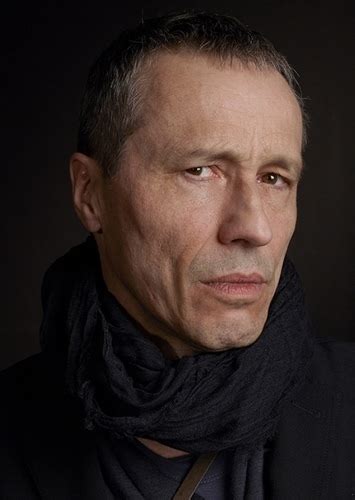A Quote by Michael Haneke
You can use your means in a good and bad way. In German-speaking art, we had such a bad experience with the Third Reich, when stories and images were used to tell lies. After the war, literature was careful not to do the same, which is why writers began to reflect on the stories they told and to make readers part of their texts. I do the same.
Related Quotes
Maybe I had something to do with that. I don't know. But public don't believe press. If you were straight and really told it like it is, as Howard Cosell used to say, right? Of course, he had some questions also. But, if you were straight, I would be your biggest booster. I would be your biggest fan in the world, including bad stories about me. But if you go - as an example, you're CNN. I mean, it's story after story after story is bad.
You look at the Koran or the Bible, they all tell the same stories. You see them as the stories of the Middle East. The stories reflect who these people were in the Middle East, and this is where Western culture came from. All our literature is basically influenced by these great myths. So I'm fascinated by it. You could almost say I'm obsessed with it. But if you're asking about the effect of religion on my life - almost everything I do is opposed to the practice of religion.
Digression is my passion. I love telling the main stories, but in some ways, what I love most is using those narratives as a way of stringing together the interesting stories that people have kind of forgotten, and that are kind of surprising. The problem is, how do you pare stories away so that the book doesn't become a distracting jumble of material, and readers lose focus? In my experience, there's really only one way to do that. I pack it all in with the rough draft, then count on myself and my trusted readers to tell me what's good and what's not good.
Only a handful of Germans in the Reich had the slightest conception of the eternal and merciless struggle for the German language, German schools, and a German way of life. Only today, when the same deplorable misery is forced on many millions of Germans from the Reich, who under foreign rule dream of their common fatherland and strive, amid their longing, at least to preserve their holy right to their mother tongue, do wider circles understand what it means to be forced to fight for one's nationality.
We can tell people abstract rules of thumb which we have derived from prior experiences, but it is very difficult for other people to learn from these. We have difficulty remembering such abstractions, but we can more easily remember a good story. Stories give life to past experience. Stories make the events in memory memorable to others and to ourselves. This is one of the reasons why people like to tell stories.
Yes, we could talk to you for days on end about all the bad first dates. Those are stories. Funny stories. Awkward stories. Stories we love to share, because by sharing them, we get something out of the hour or two we wasted on the wrong person. But that's all bad first dates are: short stories. Good first dates are more than short stories. They are first chapters. On a good first date, everything is springtime. And when a good first date becomes a relationship, the springtime lingers. Even after it's over, there can be springtime.
The Greeks used to use the same stories, the same mythology, time after time, different authors. There was no premium placed upon an original story, and indeed, Shakespeare likewise. A lot of people wrote plays about great kings. They didn't expect a brand-new story. It was what that new author made of the old story. It is probably the same now. We disguise it by inventing what seem to be new stories, but they're basically the same story anyway.
The teacher always used me as an example to the class of good English and good storytelling because we all had to write the same stories. But she used to make me go out front - which I hated - and read my story to the class and I would get huge applause. Not because of who I was but because they truly enjoyed the stories I wrote.





































